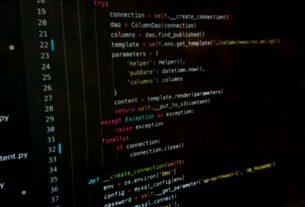Question or problem about Python programming:
deepcopy from copy does not copy a class:
>>> class A(object): >>> ARG = 1 >>> B = deepcopy(A) >>> A().ARG >>> 1 >>> B().ARG >>> 1 >>> A.ARG = 2 >>> B().ARG >>> 2
Is it only way?
B(A):
pass
How to solve the problem:
Solution 1:
In general, inheritance is the right way to go, as the other posters have already pointed out.
However, if you really want to recreate the same type with a different name and without inheritance then you can do it like this:
class B(object):
x = 3
CopyOfB = type('CopyOfB', B.__bases__, dict(B.__dict__))
b = B()
cob = CopyOfB()
print b.x # Prints '3'
print cob.x # Prints '3'
b.x = 2
cob.x = 4
print b.x # Prints '2'
print cob.x # Prints '4'
You have to be careful with mutable attribute values:
class C(object):
x = []
CopyOfC = type('CopyOfC', C.__bases__, dict(C.__dict__))
c = C()
coc = CopyOfC()
c.x.append(1)
coc.x.append(2)
print c.x # Prints '[1, 2]' (!)
print coc.x # Prints '[1, 2]' (!)
Solution 2:
The right way to “copy” a class, is, as you surmise, inheritance:
class B(A):
pass
Solution 3:
You could use a factory function:
def get_A():
class A(object):
ARG = 1
return A
A = get_A()
B = get_A()
Solution 4:
As Florian Brucker pointed out, there is a problem with mutable class attributes. You also can’t just deepcopy(cls.__dict__) on new style objects. I’ve done the following to solve this problem for what I’m doing. I’m certain someone determined enough could break this. But, it will work in more cases.
from copy import deepcopy
from typing import TypeVar
Cls = TypeVar('Cls')
# This type hint is a dirty lie to make autocomplete and static
# analyzers give more useful results. Crazy the stuff you can do
# with python...
def copy_class(cls: Cls) -> Cls:
copy_cls = type(f'{cls.__name__}Copy', cls.__bases__, dict(cls.__dict__))
for name, attr in cls.__dict__.items():
try:
hash(attr)
except TypeError:
# Assume lack of __hash__ implies mutability. This is NOT
# a bullet proof assumption but good in many cases.
setattr(copy_cls, name, deepcopy(attr))
return copy_cls
def test_copy_class():
class A(object):
mutable_class_var = []
ACopy = copy_class(A)
a = A()
acopy = ACopy()
acopy.mutable_class_var.append(1)
assert a.mutable_class_var == []
assert A.mutable_class_var == []
assert ACopy.mutable_class_var == [1]
assert acopy.mutable_class_var == [1]
Solution 5:
I think you misunderstand the meaning of static variable here. Every where you declare a variable outside a method and not in the shape of self.some_thing, the variable will be considered as class’s static variable ( like your ARG variable here). Thus, every object ( instance ) of the Class that changes a static variable will cause change of all other objects in the same Class. The deepcopy really does the job here.
Solution 6:
To copy a class with __slots__ attribute, this function will help 🙂
def copy_class(c,name=None):
if not name: name = 'CopyOf'+c.__name__
if hasattr(c,'__slots__'):
slots = c.__slots__ if type(c.__slots__) != str else (c.__slots__,)
dict_ = dict()
sloted_members = dict()
for k,v in c.__dict__.items():
if k not in slots:
dict_[k] = v
elif type(v) != types.MemberDescriptorType:
sloted_members[k] = v
CopyOfc = type(name, c.__bases__, dict_)
for k,v in sloted_members.items():
setattr(CopyOfc,k,v)
return CopyOfc
else:
dict_ = dict(c.__dict__)
return type(name, c.__bases__, dict_)
Solution 7:
This is a solution for copying at all levels:
#for windows use dill teh same way import pickle copy = lambda obj: pickle.loads(pickle.dumps(obj))
Problem was:
class A: a = 1 x = A() y = x x.a = 5 print(y.a) #return's 5
With copy:
class A:a = 1 x = A() y = copy(x) x.a = 5 print(y.a) #return 1
You wan copy anything you want, not only class instances or Classes
Solution 8:
A simple approach is to put the class in a module and reload it every time you want a new copy. I think this deals with the mutables, because the reload recreates everything.
Solution 9:
If you want to create just another instance of class then just make it:
>>> class A(object): ... ARG=1 ... >>> a = A() >>> A().ARG 1 >>> b = A() >>> b.ARG 1 >>> a.ARG=2 >>> b.ARG 1


